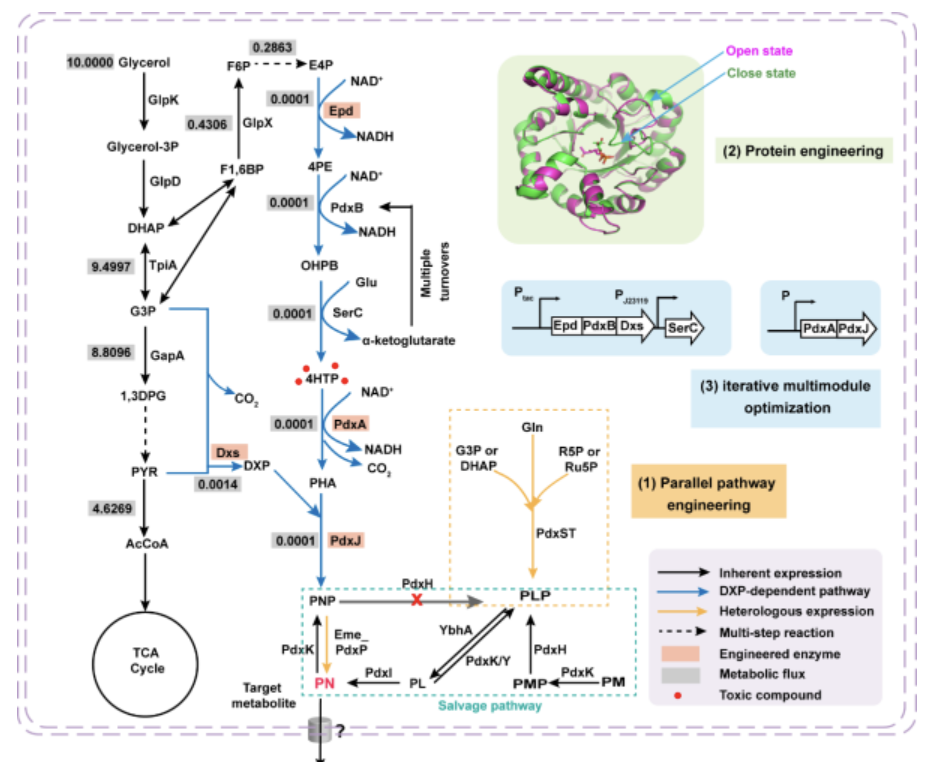https://www.cas.cn/syky/202309/t20230908_4969423.shtml
https://www.nature.com/articles/s41467-023-40928-0
Vitamin B6 is one of the essential nutritional elements for living organisms, including six forms, taking pyridoxal phosphate PLP as a coenzyme form to participate in amino acid and sugar metabolism, heme and neurotransmitter synthesis and other processes. Pyridoxine PN is the main commercial form. Some microorganisms and plants can synthesize vitamin B6 de novo, and animals and humans rely on external sources to supplement vitamin B6. At present, vitamin B6 mainly relies on chemical synthesis. Biomanufacturing has the advantages of mild reaction conditions, less potential safety hazards, and environmental friendliness.
Recently, the protein synthesis cell factory and microbial metabolism research team led by Zhang Dawei, a researcher at the CAS Tianjin Institute of Industrial Biotechnology has made new progress in the microbial synthesis of vitamin B6. The study used Escherichia coli as the chassis cell to reconstruct the de novo vitamin B6 synthesis pathway and redirect the metabolic flow to uncouple cell growth and PN production. Furthermore, the study used methods such as protein rational design and natural screening to carry out heterologous screening and rational design modification of the initial enzymes Epd and Dxs of the synthetic pathway and the rate-limiting enzymes PdxA and PdxJ, which effectively solved the problem of low catalytic efficiency of synthetases in the reaction process, increased metabolic flux and promoted the rapid turnover of PdxB through overexpression of SerC. In order to reduce effects of the toxic intermediate 4HTP, the synthesis pathway was divided into upstream and downstream push-pull modules. The upstream module and the downstream module were effectively assembled and optimized through modular iterative optimization technology.
After 48-hours in a 5L fermentation tank, the yield of vitamin B6 exceeded the gram level.


